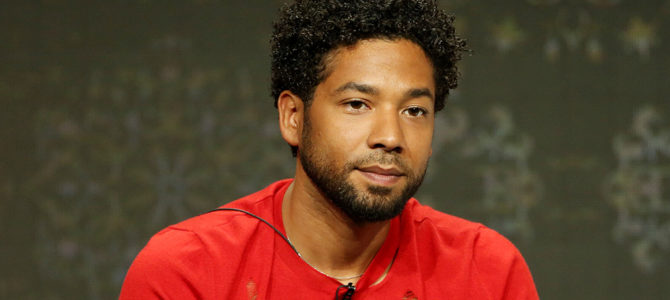The era of high-profile hate crimes and accusations brings a truly bizarre and disheartening reality. Many people want to see hate and vile action. It is easy to observe, and reflects the deep divides in our society.
The phenomenon happens once an allegation has been made. When evidence is sparse or nonexistent, some people want to believe the worst truly happened. It isn’t that people want new crimes to occur (although some sick people perhaps do desire this). When a hate crime or serious physical or sexual assault is alleged, certain people rally around the alleged victim, explicitly or implicitly revealing their hope that the story is true.
To crystalize this, two examples are instructive: Justice Brett Kavanaugh and “Empire” actor Jussie Smollett. In each case, one or more parties made an accusation that had no evidence or corroboration. It was simply a battle of “he said/she said.” Because someone must be lying, we already have one wrong action––the lie, be it the allegation or defense. But rather than hope only that someone had the gall to lie, many genuinely hope the lie is coming from the accused rather than the accuser.
This means people truly want to believe that Dr. Christine Blasey Ford was sexually assaulted, rather than believe she lied about it. They genuinely hope Smollett was beaten and accosted with racial and homophobic slurs, rather than believe he lied.
Of course, people generally hope no one would lie because that is wrong, but why would people hope a second and worse wrong has also taken place? Why would people hope that Kavanaugh lied and sexually assaulted Ford, instead of just her lying? With Smollett, the choice is between one lie or one real violent assault.
The answer is obvious but unsavory: there is political advantage to the other side being wrong. Partisans and ideologues want to claim the moral high ground for their side, and if the other side can be shown to commit terrible actions, that is desirable. This means that, when evidence is not available, some would rather someone on their own side had been raped, beaten, and accosted so they can proclaim their victimhood and the other side’s brutality in the media rather than believe or admit that someone on their side told a lie.
Underlying this phenomenon is that the truth of the matter is not relevant at this stage, because it isn’t yet known. The desire to believe a despicable crime did happen comes before the evidence is shown and the truth revealed. Perhaps Ford told the absolute truth, and perhaps Smollett is entirely honest. The fact remains there is no corroboration for either claim, and many people viscerally hope the worst truly did happen.
At least among the progressives who hold this view, it’s an irony that they long to see the worst in people. With one breath, they proclaim people to be capable of great evil and malice, and with the next breath ask for more power and control in the government.
All people are corruptible and capable of bad action, so when vile actions are alleged, it is reasonable to believe they actually occurred. In the absence of evidence, it is also reasonable to believe the accusation is a lie. But it is truly odd that anyone hopes, once a lie has been told, that abuse also happened.
Perhaps people believe that since the alleged action is in the past, there is no harm in hoping it is true. After all, it is not a desire for future abuse, which would be unconscionable. But it still means they would rather the person live with the shame, embarrassment, pain, and anguish of victimhood rather than simply be a liar.
We will never see a day where the masses express good faith skepticism in politically charged accusations. For now, when the truth is unknown and evidence is lacking, many people would rather rally to their political side than risk losing the moral high ground by believing or revealing that a lie was told.









